TABLE OF CONTENTS

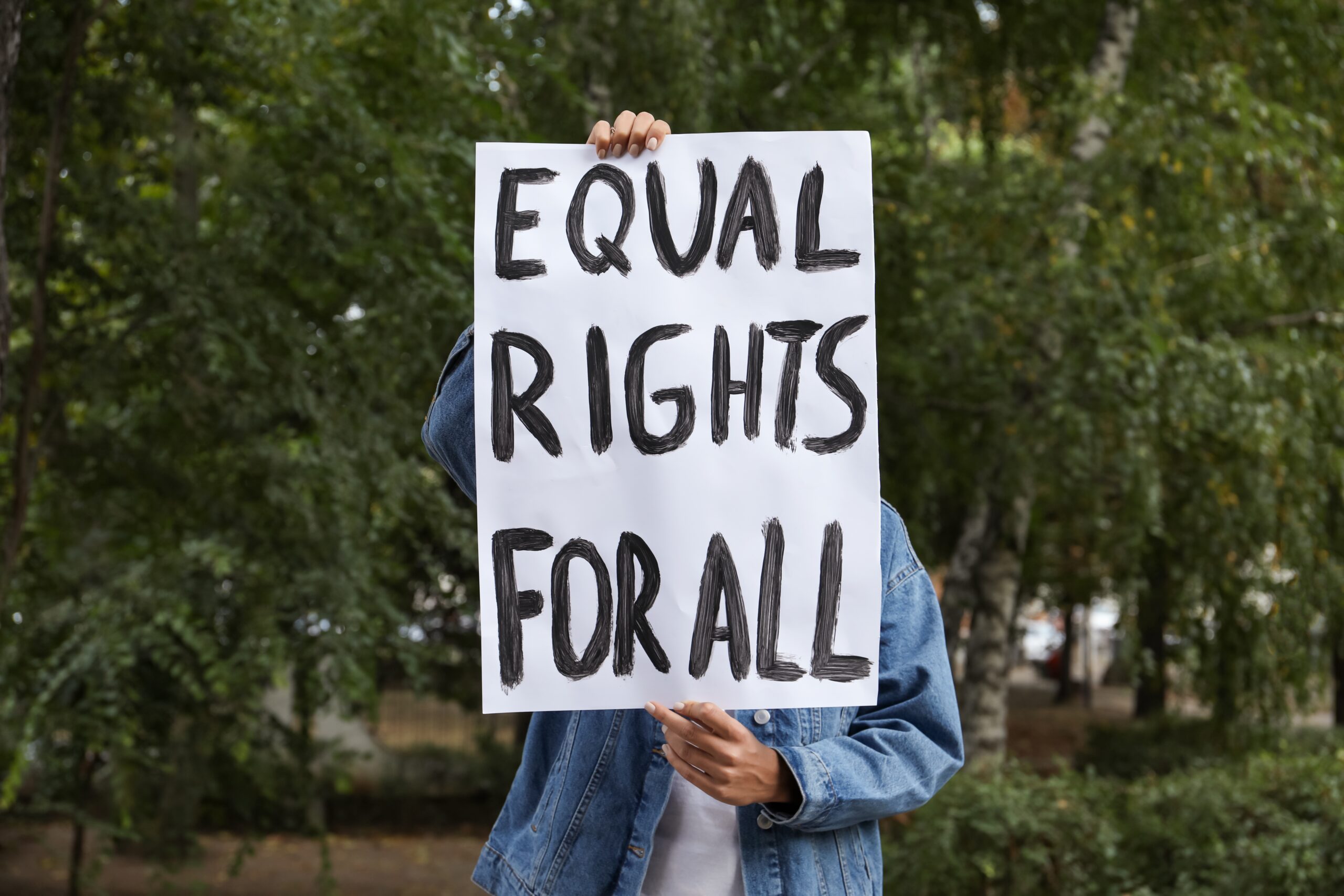
Photo credit: Shutterstock
Even before President Trump was elected, he made devastating promises to erode fundamental constitutional protections wholesale. During the first few months of his second term, he’s repeatedly disregarded constitutional principles, rule of law, and centuries of legal precedent in order to undermine fundamental rights, especially for the most vulnerable communities.
Time and again throughout history, states like New Jersey have been on the frontlines of freedom to protect and advance civil rights and liberties, and this moment calls for the same.
During President Trump's first term, the ACLU filed over 430 legal actions against his administration. This time, the ACLU filed our first lawsuit on the evening of his second inauguration in an immediate challenge to his unconstitutional executive order attacking birthright citizenship.
We expect President Trump to continue attempting to undermine rights in a way our country has never seen before. But the ACLU is better prepared than ever to confront efforts to dismantle our democracy.
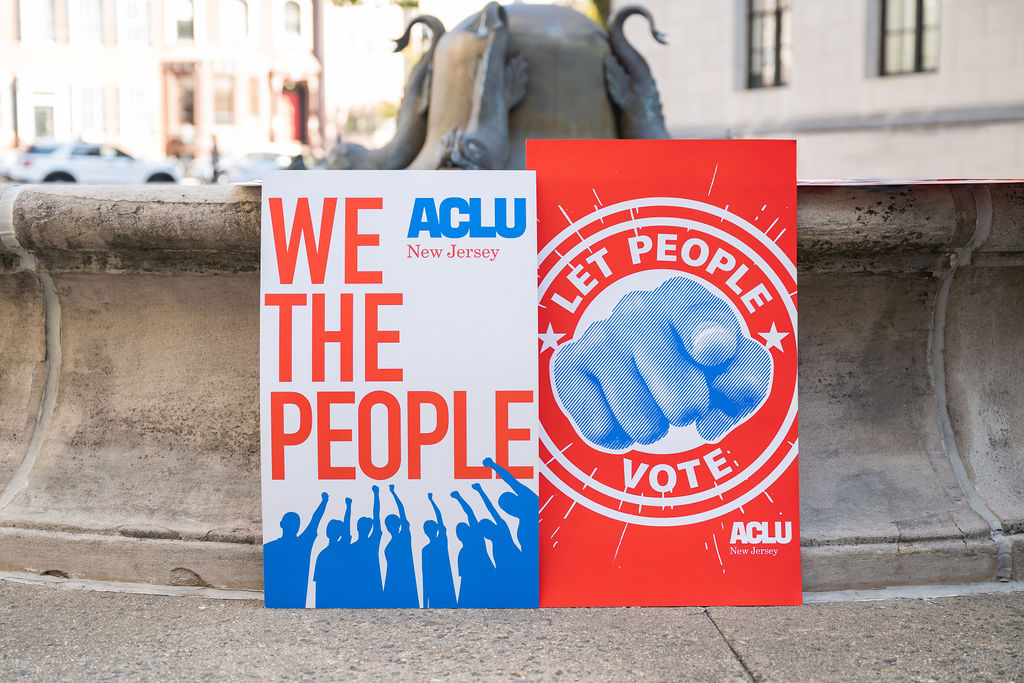
Photo credit: Fabienne Calkins
Since the start of Trump’s first term, New Jersey has enacted new protections to safeguard reproductive freedom, advance immigrants’ rights, and achieve fairer elections. In that time, our state has legalized cannabis in a way that centers racial and social justice, effectively ended cash bail, and released more than 9,000 people from state prisons and jails.
In the months ahead, we will do all we can to forge the nation’s strongest firewall for freedom in New Jersey to further ensure that civil rights and liberties are protected and strengthened for all who call our state home, regardless of who holds the White House.
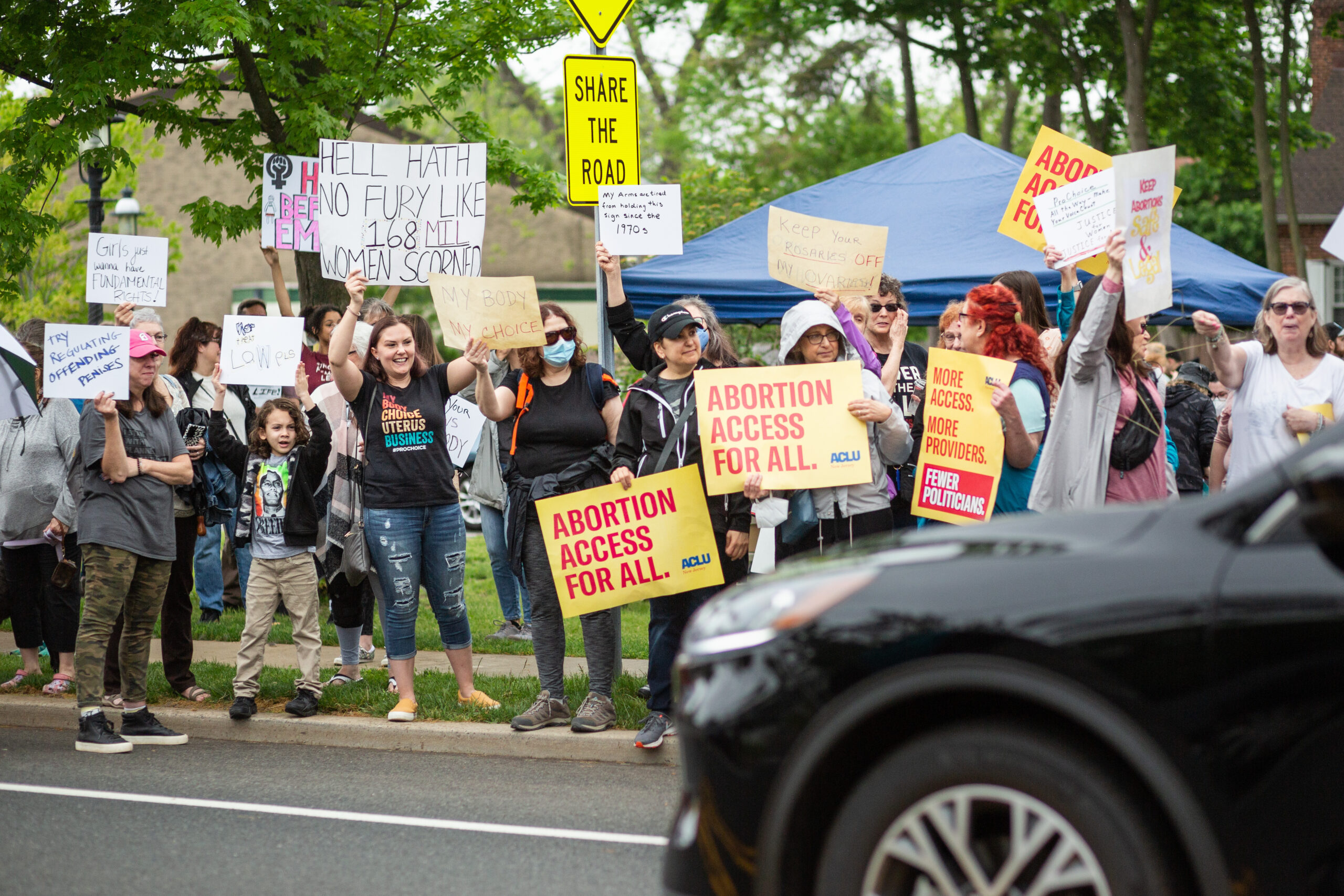
Photo credit: Richard Alfonzo
In the Garden State, that means passing the John R. Lewis Voter Empowerment Act to expand access to the ballot box; enacting the Immigrant Trust Act to ensure local resources aren’t used in federal immigration enforcement; expanding abortion access for all; protecting the rights of LGBTQIA+ community members; ending mass incarceration by releasing people from prison at the largest scales, including through categorical clemency; and prioritizing data-driven, human-centered solutions to bolster public safety while rejecting tough-on-crime fearmongering.
These strategies will help us protect all New Jerseyans. We know there will still be unforeseen, egregious threats to rights and freedoms, but the ACLU and our partners are ready to do all we can to ensure communities thrive and democracy prevails.
Onward,

Amol Sinha
Executive Director

Marc Beebe
President, Board of Trustees

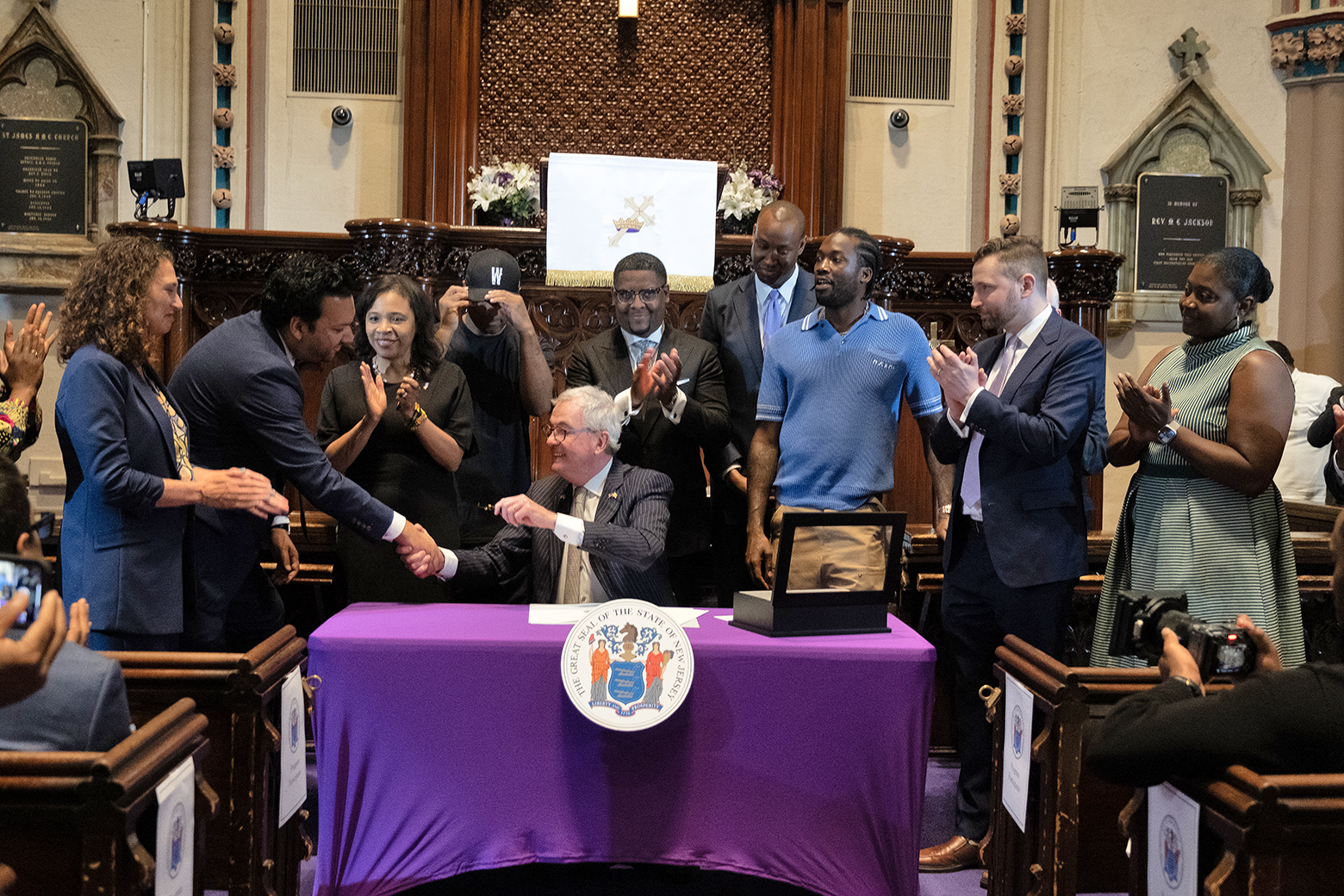
Governor Murphy signs an executive order creating an advisory board to review petitions for pardons and commutations on June 19, 2024, in Newark, NJ. | Photo credit: Christopher Lopez
When we launched the Clemency Project last year, it continued our enduring vision to end mass incarceration in New Jersey. Our first victory came when Governor Murphy signed an executive order in June to create an expedited process to review petitions for pardons and commutations for people who fall into specific categories.
Since then, ACLU-NJ attorneys have reviewed case files and authored petitions for release. We have already seen this project have an impact on New Jersey families: on December 16, we celebrated the first grants of clemency under Governor Murphy’s administration.
In doing so, our state showed it truly values second chances. And we believe it’s just the start.
Dawn Jackson and Denise Staples are two of our clients who were granted clemency that day. Both are survivors of domestic violence, a class too often punished by a criminal legal system that is overly punitive and dangerously deficient in assessing instances of trauma.
Ms. Jackson, a survivor who faced abuse starting at the age of 5, was sentenced to 30 years for fatally stabbing one of her abusers, without consideration of the abuse she had endured. “I’m grateful for the chance to give back and instill empowerment into the lives of those who have been affected as I once was,” said Jackson.
Ms. Staples, a survivor who declined a plea deal of 14 years and chose to go to trial asserting self-defense after fatally stabbing her abuser during an assault, received an excessive 60-year sentence. This amounted to a 46-year trial penalty for exercising her constitutional right to a trial rather than agreeing to the prosecutor's plea deal. “I'm so glad that I survived my past, when so many did not. I truly believe I have been rehabilitated and am ready to have a normal life – something I never had the chance to have,” said Staples.
We founded the Clemency Project to urge our state to leverage the power of categorical clemency to further reduce New Jersey’s prison population, further racial and social justice, and address systemic harm. We hope Governor Murphy will continue to issue pardons and commutations at a scale never before seen in New Jersey history.
At the ACLU-NJ, we know clemency means so much more than mercy – it’s a second chance at freedom.

All students deserve to feel safe, supported, and respected in school. That’s why we are working to ensure all school districts across the state meet their responsibilities to LGBTQ+ students and their families under federal and state law.
That means making sure schools are a place where all children are able to get a quality education, regardless of their gender identity or sexual orientation. Students learn best when they feel safe to be themselves and can develop trust with their teachers.
New Jersey school districts should do everything they can to make sure all young people feel respected – and politicians should not be making it harder for them to do so.
When school districts across New Jersey revoked a policy in 2024 that safeguards the wellbeing of LGBTQ+ youth, we sent letters urging them to readopt the policy. Without it, administrators are left without clear guidance, opening those districts to legal liability, and signaling to LGBTQ+ students and families that their schools may not be a safe and welcoming environment.
Then, when three Monmouth County school districts put policies in place that required school staff to out transgender students to their parents or guardians, we filed amicus briefs in support of lawsuits brought by the New Jersey Attorney General to enforce the state Law Against Discrimination.
In court, we argued that any policies that target gender-nonconforming students not only violate the Law Against Discrimination but also raise constitutional rights concerns and would cause physical, mental health, and educational harms for transgender students.
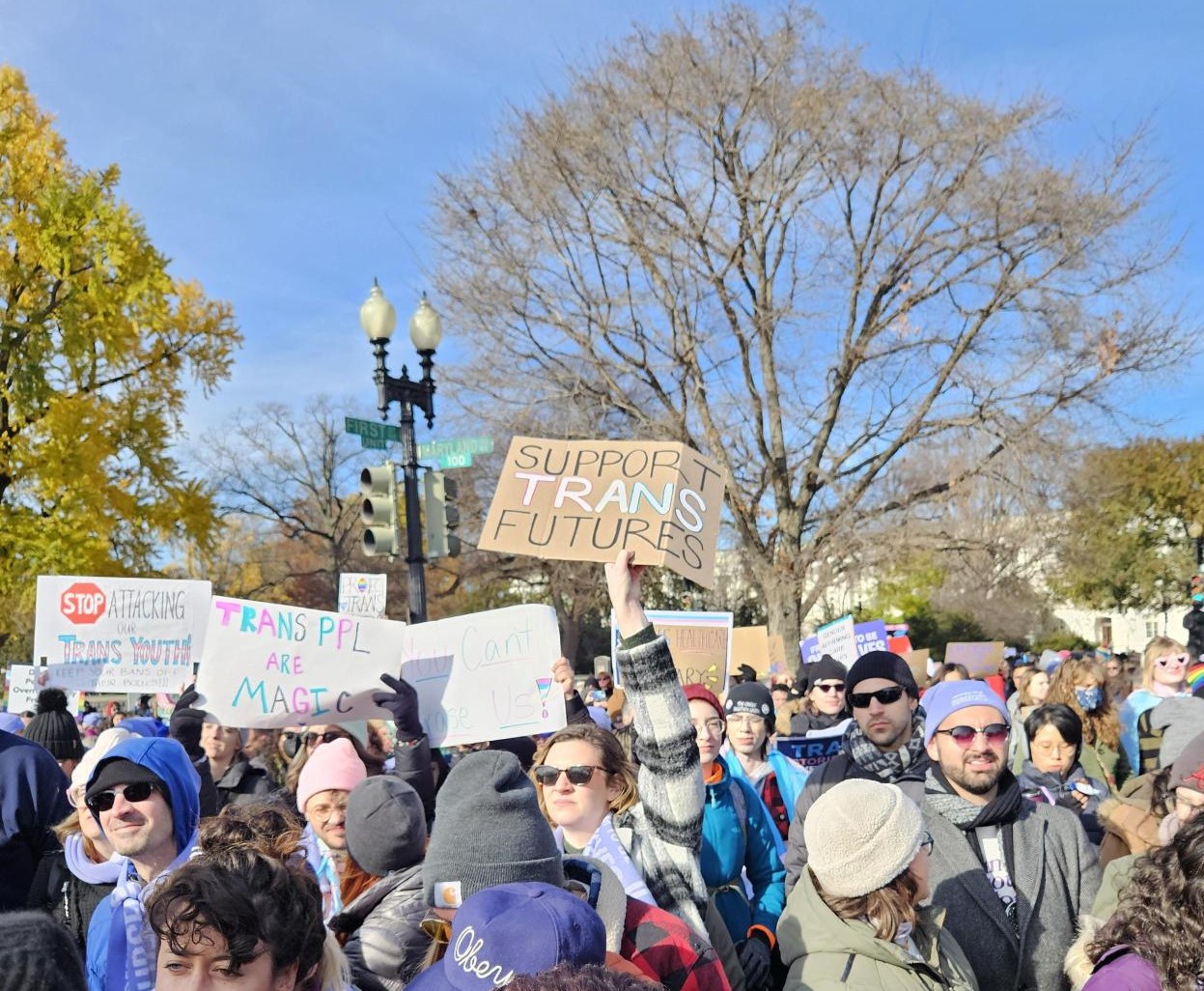
ACLU-NJ joined ACLU supporters from across the country outside of the U.S. Supreme Court in support of LGBTQ+ rights on December 4, 2024 in Washington, D.C. | Photo credit: ACLU-NJ
ACLU-NJ advocacy aims to protect and expand fundamental freedoms that ensure LGBTQ+ people can live openly without discrimination and exercise equal rights, personal autonomy, and freedom of expression and association.
Our state can and must lead by example in protecting and advancing civil rights and liberties for all, regardless of sexual orientation or gender identity.


Edgar Aquino-Huerta is a Farmworker Organizer for El Comité de Apoyo a los Trabajadores Agrícolas, a grassroots organization advocating to improve the working and living conditions of farmworkers and the Latine immigrant community. | Photo credit: Edgar Aquino-Huerta
Over the summer, the ACLU-NJ and our partners filed a lawsuit on behalf of El Comité de Apoyo a los Trabajadores Agrícolas (CATA) – a grassroots organization advocating to improve the working and living conditions of farmworkers and the Latine immigrant community.
The lawsuit argues that the exclusions in New Jersey’s wage and hour laws denying farmworkers equal wages and overtime protection are discriminatory.
Since 1966, New Jersey has denied farmworkers the right to overtime pay that it mandates for other similarly situated workers. Today, the state’s Wage and Hour Law still denies farmworkers the same wage and overtime protections guaranteed to other New Jerseyans. Despite amending the law in 2019 to increase the minimum wage to $15 beginning in 2024, legislators once again disqualified farmworkers from equivalent protection, setting a lower minimum wage and instituting only incremental wage increases until 2030.
Many farmworkers in New Jersey have little union representation and cannot vote in elections. This reality makes farmworkers especially vulnerable to unfair workplace treatment. These exclusions also mirror federal policies that were intentionally designed to perpetuate racial discrimination. New Jersey lawmakers modeled them on equivalent exclusions in the Fair Labor Standards Act and other New Deal labor laws – both designed to specifically exclude Black and minority workers.
The legal arguments assert that New Jersey’s arbitrary exclusions of farmworkers from wage protections are based in racism and effectively relegate farmworkers to a second-class legal status, depriving them of their rights to equality, dignity, safety, and health.
States across the country have recognized that overtime and minimum wage exclusions undermine equality – it’s past time for New Jersey to do the same.


Photo credit: ACLU-NJ
In recent years across the nation, we've seen a resurgence of systematic attempts to ban books from libraries, classrooms, and curriculums with the aim to undermine experiences across all races, genders, and sexualities. Even though New Jersey has been a national leader in protecting and expanding civil rights and liberties, there have been censorship attempts across the state this year, too.
That’s why, in December, New Jersey enacted the Freedom to Read Act. In doing so, our state is living up to its values by protecting the fundamental rights to freely speak, think, read, and write – especially for those who are most vulnerable.
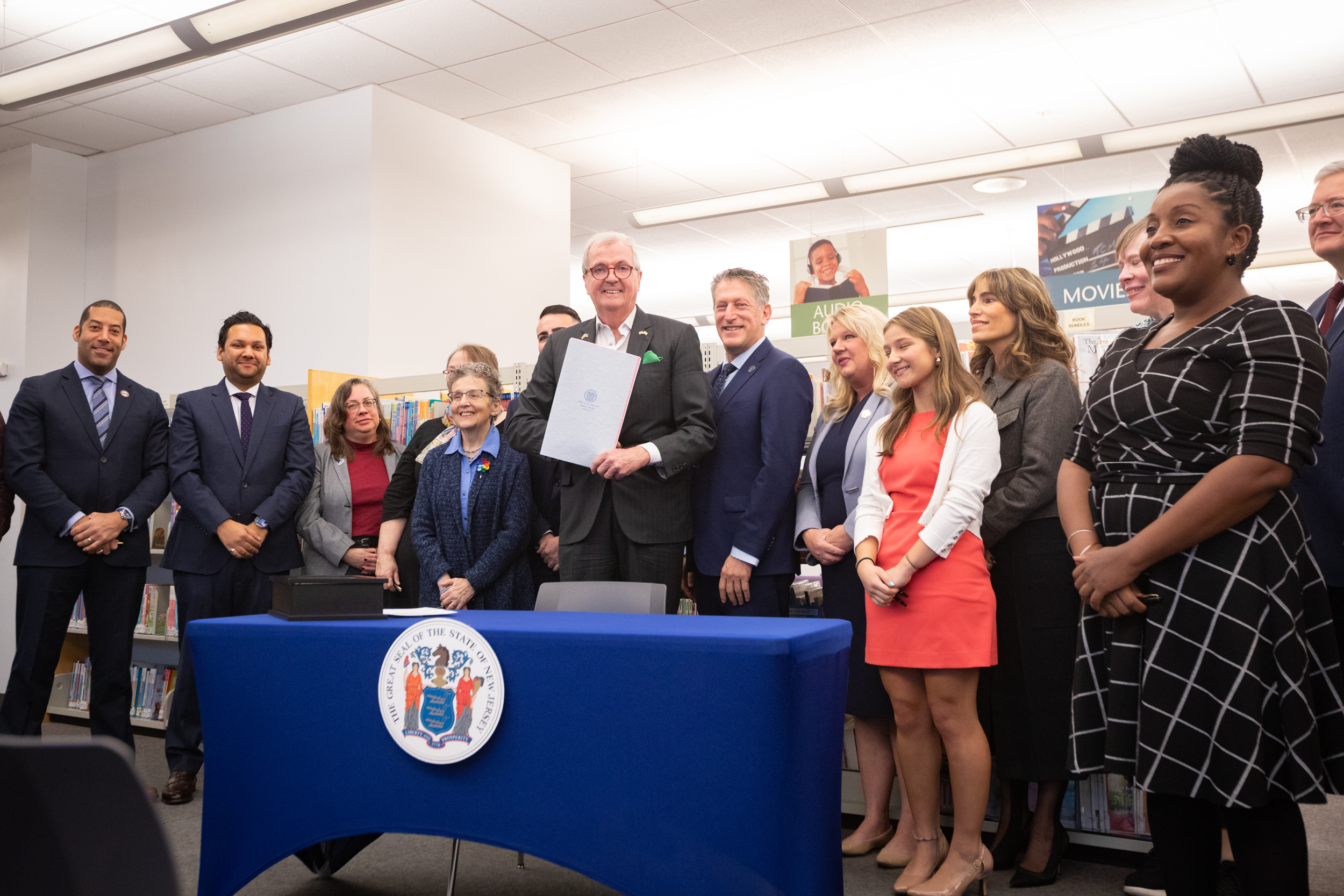
ACLU-NJ Executive Director Amol Sinha (left) attends the signing of the Freedom to Read Act on December 9, 2024, in Princeton, NJ. | Photo credit: Rich Hundley III/ NJ Governor’s Office
The ACLU has defeated censorship attempts throughout the nation for over 100 years. Take us at our word: restricting access to under-represented voices is intended to invalidate marginalized identities and has no place in a healthy democracy. The opportunity to learn about experiences different than our own is a fundamental part of what allows our state, and our country, to achieve inclusive progress.
We have a responsibility to learn from our nation’s history, reject discriminatory attacks by prioritizing inclusive policy change, and protect New Jerseyans’ fundamental rights.
As the right to access information is under attack, our state has an obligation to lead by example in defending it.

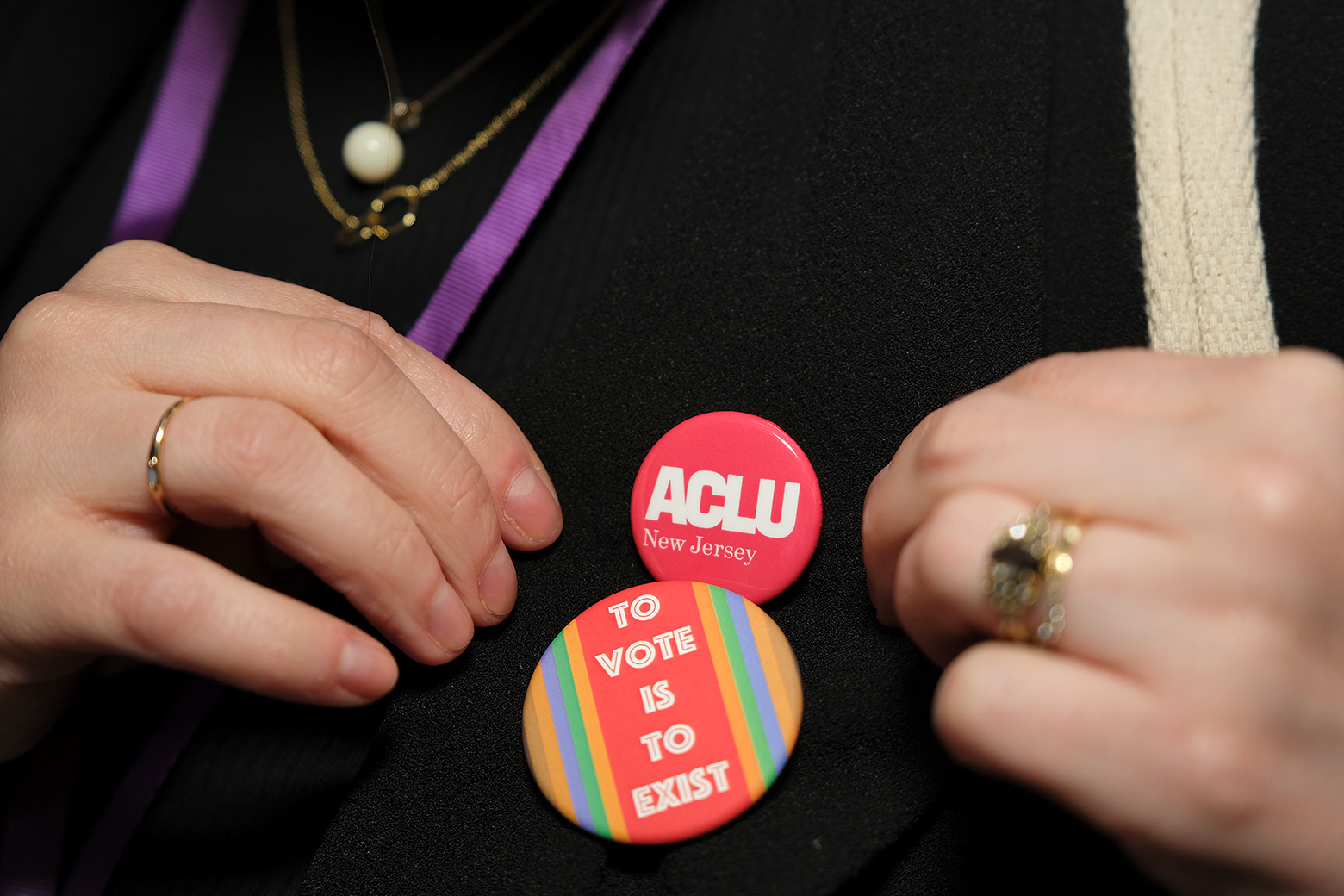
Photo credit: Christopher Lopez
Voting is the cornerstone of our democracy and the fundamental right upon which all our civil liberties rest – yet far too many New Jerseyans still face serious challenges when trying to vote.
Throughout the year, the ACLU-NJ advocated in the Legislature and the courts to advance voting rights for all who call our state home. In March and April, we filed amicus briefs in an expedited challenge to New Jersey’s “county line” primary ballot system, arguing that the government must serve as a neutral referee in administering elections. A federal appeals court agreed and, for the first time in decades, this year’s Democratic Primary moved away from the county line design. This change was another step forward in safeguarding elections in our state.
Then, in May, we held a U.S. Senate Democratic Primary Debate to provide another means for voters to hear candidate positions on the challenges that affect their lives. Candidates discussed some of the most pressing issues of our time, including racial justice, immigrants’ rights, and reproductive freedom.
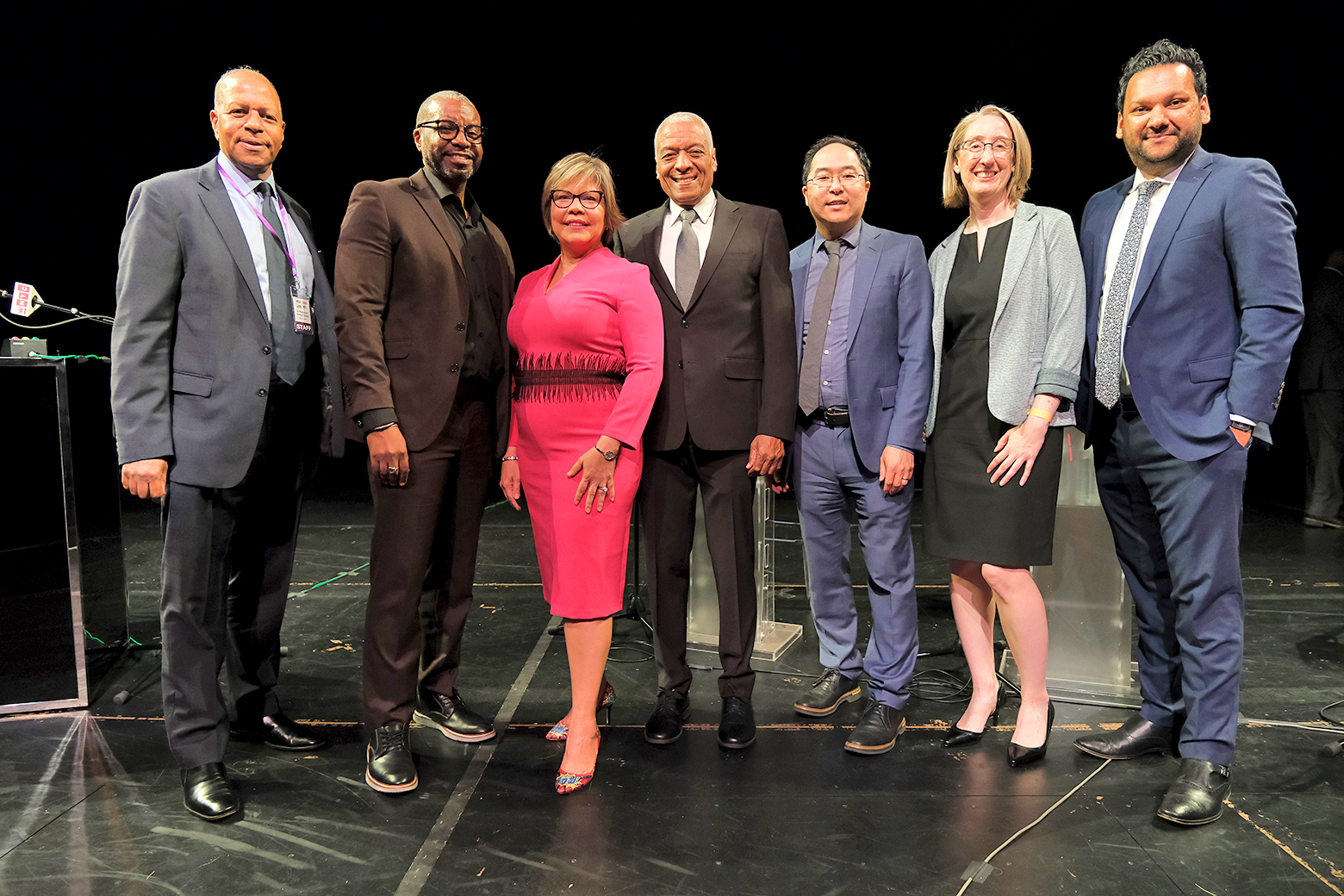
ACLU-NJ hosts a Democratic Primary debate with candidates running for the U.S. Senate on May 13, 2024, in South Orange, NJ. From left to right, Michael Hill (WNYC), Charles Boyer (Salvation & Social Justice), Patricia Campos-Medina, Larry Hamm, Andy Kim, Jesse Burns (League of Women Voters of New Jersey), and Amol Sinha (ACLU-NJ). | Photo credit: Christopher Lopez
Heading into 2025, New Jersey must do more to advance voting rights for all. We’re calling for the passage of the John R. Lewis Voter Empowerment Act, a New Jersey voting rights act that will combat voter discrimination and suppression.
Our state must do all it can to ensure every voice is heard, and that means protecting and expanding access to the ballot.
Stay Informed
Sign up to be the first to hear about how to take action.
By completing this form, I agree to receive occasional emails per the terms of the ACLU’s privacy statement.
By completing this form, I agree to receive occasional emails per the terms of the ACLU’s privacy statement.
